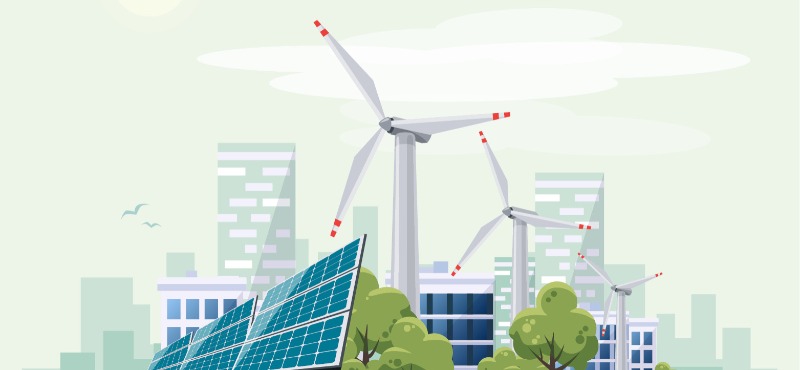Jee-Seon Lee of Johnson Winter & Slattery—Australia’s 2020 “Law Firm of the Year” in Energy Law—joined Phillip Greer, CEO of Best Lawyers, to discuss the complexities and the changing landscape of energy and resources.
Best Lawyers: Can you tell me about the evolution of your firm’s energy law practice and how it’s helped earn the reputation it has right now amongst the experts in the field?
Jee-Seon Lee: Energy and resources is one of our core specialist areas. Our focus has been on building a national team of experts who provide commercially astute legal advice all around the country. So, it’s great to be recognized for that. Our expertise is very much built on our lawyers having been involved in energy markets around the country since their inception and advising on the changing regulatory landscape.
We understand the risks in energy contracting and risk management. We understand the commercial context and drivers for energy projects. Because our business model is all about senior lawyers doing strategic and complex work, we’ve been able to offer in-depth legal advice and commercial insights to our clients. I think our clients value that.
What major trends have you witnessed within energy law in the past year?
Jee-Seon Lee: Energy law is a broad area of practice and I think you have to look at the trends for different segments of the market.
Breaking this down and looking at the upstream oil and gas sector, many upstream projects are moving from construction to operational phase now, with major projects coming online in the last 12 months. Notably, we have Ichthys, Prelude and Wheatstone LNG (Liquefied Natural Gas) projects up and running in 2019.
These LNG projects are all Greenfield projects, but looking forward, the next wave of upstream development is likely to be in projects which backfill spare capacity in existing infrastructure such as Pluto, North West Shelf and Darwin LNG plants.
In the east coast domestic gas market, the expansion in LNG export capacity has certainly contributed to tight gas supply conditions and there have been concerns about supply shortfalls in the market. Some domestic gas users are expressing concern over the lack of domestic gas reservation policy in Australia. The federal government so far has not adopted a reservation policy across the board in Australia, but has responded with some measures like the Australian domestic gas security mechanisms to ensure that these concerns are being heard and met. That mechanism is intended to encourage the industry to increase exploration and offer supply into the domestic market where and when it’s needed. The industry is also responding to the tight domestic gas market by proposing to build LNG import terminals in New South Wales and Victoria.
Turning to the electricity market, the dynamics in the East coast electricity sector are very complex. Some recent trends that we’re seeing in that segment of the market are the growing number of corporate consumers signing renewable PPA’s (Power Purchase Agreement) to support investment in new solar and wind farms and more solar developers willing to take merchant risk in the national electricity market, off the back of high power prices.
We have a fleet of aging coal-fired baseload plants in the National Electricity Market, which are due for retirement. The combination of that with increased renewable power generation means that there is increased pressure on power prices and concerns over security and reliability of supply. That is translating to some heavy handed policies from governments to keep a lid on prices and assure reliability.
It is a complex environment and there are lots of challenges going forward in the East coast market. Contrast that with Western Australia where we have experienced fairly flat demand in gas and power consumption. There is currently excess generation capacity and lower electricity demand due to growth in rooftop solar in the State. These, of course, present their own set of challenges. With aging, power infrastructure in the State, securing reliable and affordable energy supply while responding to environmental and climate change concerns remain an ongoing challenge.
Have there been any important policy changes locally or abroad that’s impacted energy renewal?
Jee-Seon Lee: There have been numerous changes, but I would like to mention two key areas to watch for now. Firstly, the changing policy on onshore fracking in the Northern Territory. The Territory government has lifted the moratorium on onshore fracking and we are likely to see a new wave of exploration in the Territory. This may significantly change the Australian East coast gas market landscape.
The other important development, while it is still at its infancy, is the growing support from government and industry for a transition towards a zero-emissions hydrogen economy. We are still a long way from this becoming a reality, but this is a potential game changer for the energy industry.
How do you expect this practice area will evolve in the coming years?
Jee-Seon Lee: A move away from traditional energy sources, together with the rapid rate of change in technology means that there will be gaps in the way that our current regulations and markets operate. There will be pressure on everyone involved in the industry to respond with innovative and tailored solutions. That applies to legal advisors as well as those of our clients who are participating in the industry.
Reference: An Interview With Johnson Winter & Slattery
3,372 total views, 1 views today

